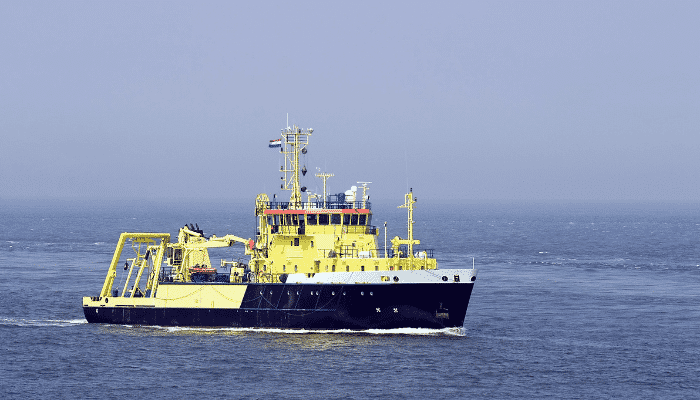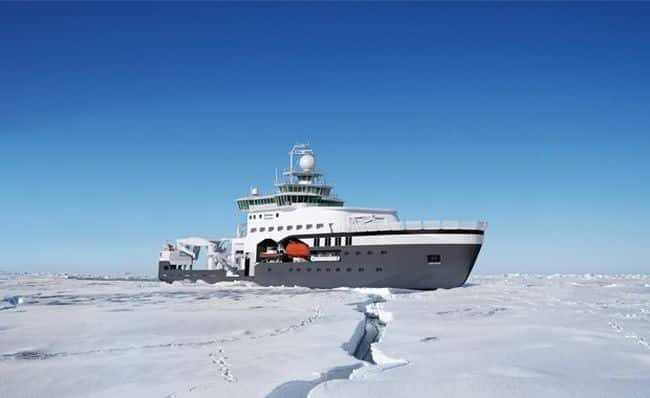

Research vessels fulfil an important need of carrying out research at the sea. As their titular reference indicates, these ships help in the detailed analyses and studies of the oceanic arena for various purposes. The construction and the structural composition of these kinds of ships are majorly customised to suit the operational needs. This type of vessels are designed and built in a manner to face the toughest environmental conditions at the sea.
The earliest known utilisation of a research vessel predates back to the mid-1700s when the well-known and well-regarded adventurer James Cook was commissioned to study about planetary movements, while being positioned in the Pacific Ocean. Though at that time the vessel employed was not officially accredited as being a research ship, the nature and the characteristics of the outlined project demarcated it to be as one of the pioneering vessels to be applied in the field of sub-water researching.


A research vessel can be utilised for myriad purposes and in diverse oceanic regions.
Some of main purposes of research vessels are:
Research vessels are majorly employed in the remotely vast polar arenas for polar region research. The vessels that address the scientific and analytical needs of these regions are structured with special torsos that allow them to pave their way through the icy sheets and extreme weather conditions.
A research ship can also be employed to study the patterns of the marine life-forms occurring within various water zones. Researching ships that are thus used come equipped with the necessary piscatorial equipment to aid the process.


Researching vessels are also utilised in the offshore oil and gas excavation sector so as to enable better understanding of the sub-water crude and gas reservoirs. They are employed so as to determine the best suited area to install the necessary excavation riggings.
As a means to validate the maritime security of a nation, researching vessels are employed at the national level so as to find out about any chances of naval security breach or invasion
The domain of Oceanology also necessitates the utilisation of a research ship. Such a research undertaking involves studying of the oceanic weather and tidal conditions, monitoring the features of the oceanic water and studying the seismologic trends of the underwater geography.
Research vessels are also utilized by the fishing industry to carry out various types of researches such as fish finding, water sampling etc.
In the present times on account of the development in science and technology, even researching vessels have become quite advanced. It is also expected that in the future, the concept of researching ships will bear several more pioneering hallmarks.
Some famous Research Vessels:
Flip Ship – A Unique Research Vessel
G.O. Sars – An Advanced Research Vessel










We believe that knowledge is power, and we’re committed to empowering our readers with the information and resources they need to succeed in the merchant navy industry.
Whether you’re looking for advice on career planning, news and analysis, or just want to connect with other aspiring merchant navy applicants, The Marine Learners is the place to be.